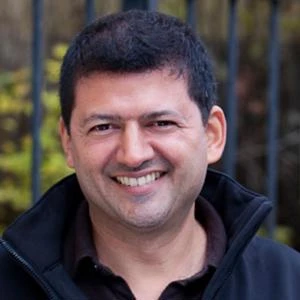
Connect
About
I am a political anthropologist whose work interrogates energy security and ecological vulnerability in the global North through the analytic lenses of expertise, aesthetics, and futurity. Situated at the intersection of political anthropology and science and technology studies, my research examines how extractive futures are made governable through expert performance, visual regimes, and affective infrastructures, and how these processes differentially expose land- and marine-based ways of life to climate risk. For over two decades, I have conducted ethnographic fieldwork across the Arctic with consultants, policy elites, lobbyists, and local representatives, tracing how authority, value, and legitimacy are assembled within elite knowledge worlds.
I hold a permanent position as Associate Professor at the Institute for Social Anthropology, Norwegian University of Science and Technology (NTNU), and am a Research Affiliate with the Centre for Energy Ethics at the University of St Andrews.
As a Visiting Senior Fellow, I recently completed a Routledge trilogy, Inside the Energy Salon, which advances a theorization of expert performance as a central mechanism of late-liberal governance. The three volumes examine how energy futures are rendered legible, investable, and morally persuasive within policy and investment networks, extending scholarship on value regimes, affect, and the performative infrastructures of expertise. Conceptually, the project develops an anthropology of surfaces, arguing that surface appearance – visual coherence, stylistic authority, and curated interaction – constitutes a primary site through which power operates in contemporary energy politics.
My edited volumes, Arctic Abstractive Industry: Assembling the Valuable and Vulnerable North and Subterranean Estates: Life Worlds of Oil and Gas, elaborate this concern with valuation, vulnerability, and extraction by foregrounding how ecological risk and economic promise are co-produced across heterogeneous social and material worlds. I am currently co-editing The Corridor of Impact volume (with Michael Watts) which reconceptualizes infrastructure corridors as dynamic socio-technical formations whose impacts are not pre-given, but emerge through temporal processes of governance, expertise, and contestation.
I am starting a new project titled The Future of the Promenade: A Climate-Changed Form that examines how climate change is reshaping the geography of leisure, public space, and urban planning through the northward migration of the beach promenade. This project tracks the shifting northern boundary of the promenade by following the experts who are actively designing its future: urban planners, climate scientists, tourism consultants, and municipal officials. Through ethnographic engagement with these actors, I will examine how climatic forecasts, comfort metrics, and development logics are mobilized to produce new landscapes of leisure.
My forthcoming writing project, Paparazzi Ethnography: An Anthropology of Surfaces and Curated Interactions, develops a methodological and visual approach to studying the performative staging of expert knowledge in elite energy politics. Conducted between 2010 and 2017, the project captures fleeting moments, surfaces, and Anthropocene visuality, highlighting how expertise is performed in high-stakes environments. Supported by the U.S. National Science Foundation, Fulbright Awards (Norway, Russia, and Canada), and the Wenner-Gren Foundation, this work serves as a conceptual precursor to my 2024–2026 book trilogy, Inside the Energy Salon, which examines how consultant experts shape global governance through visual and performative authority.
Books
Energy Images: Aesthetics of Resemblance and Form. London: Routledge, 2026.
Consulting Energy: From Judgment to Decision-Making. London: Routledge, 2025 (with a Foreword by Dominic Boyer).
Energy Capitol: The Waning of Regulatory Form. London: Routledge, 2024.
Arctic Abstractive Industry: Assembling the Valuable and Vulnerable North. London: Berghahn Press, 2022 (editor).
Subterranean Estates: Life Worlds of Oil and Gas. Ithaca: Cornell University Press, 2016 (editor with Michael Watts and Hannah Appel).
Recent blog posts
Movement and Meaning for Oil and Gas Data Vendors. Allegra Lab
Advocating Slow Policy on Deep Sea Mining in the Svalbard Archipelago: Reflections on the Making Use of Arctic Science Workshop. Beyond Hot Air
En Bærekraftig Fremtid for Svalbard. Svalbardposten
Anthropology in Norway: Directions, Locations, Relations. Norway Anthropology Journal
Assembling the Valuable and Vulnerable North. Society for Cultural Anthropology
Anthropology of Fleeting Phenomena. Paparazzi Ethnography
Making Use of Arctic Science. StudioPolar
Expertise
Anthropology of Surfaces, Anthropocene; Arctic Late Industrialism, Energy Expertise; Neo-Aristocracy.